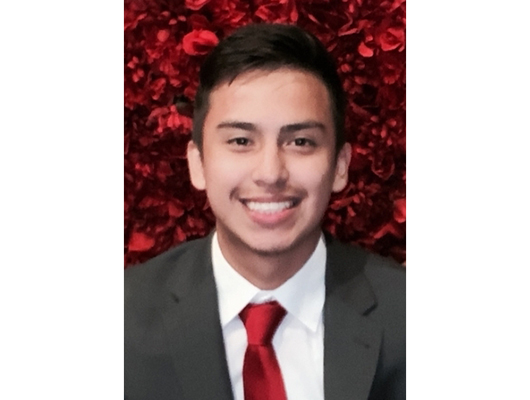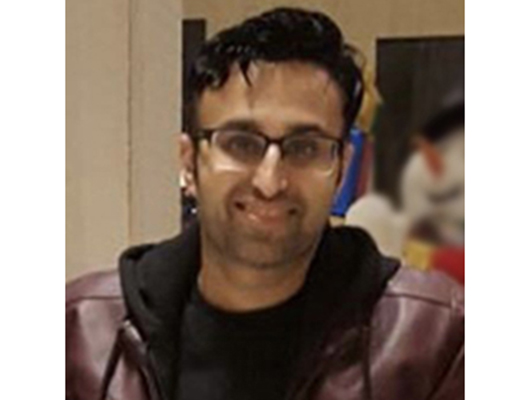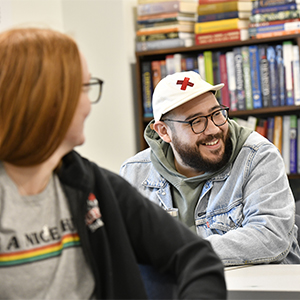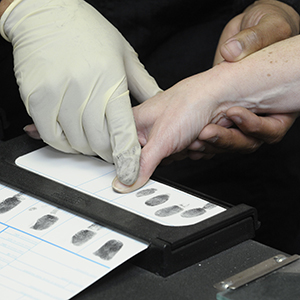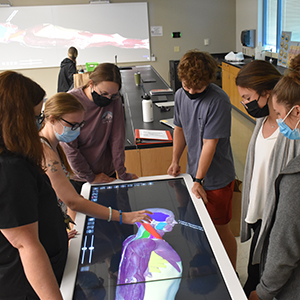Psychology Major - BA or BS Psychology Programs
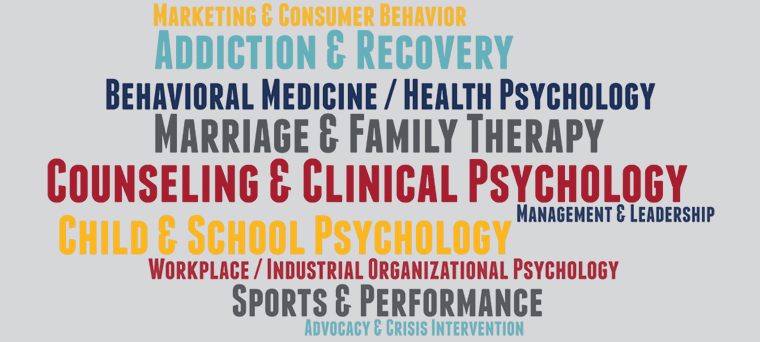 Did you know you don't need a doctorate to work in the field of mental health?
Did you know you don't need a doctorate to work in the field of mental health?
Earning a bachelor's degree in psychology is the first step to a rewarding career that puts your expertise and empathy to work. Pursue either a Bachelor of Arts in Psychology (BA) or a Bachelor of Science in Psychology (BS), based on your interests.
Our faculty closely mentor every student to help you plan your next step, whether it's diving immediately into full-time work after graduation, earning your master's degree and license to become a licensed therapist or counselor, or pursuing one of the many other careers that value training and experience in psychology.
-
100%
of GMercyU Psychology majors take at least two advanced research courses
-
100%
of GMercyU Psychology majors present their research at GMercyU's annual research conference
-
100%
of GMercyU Psychology majors complete at least one internship of clinical work
-
55%
of our students were offered a paid position from their internship at a clinical site upon graduation
-
97%
of recent GMercyU graduates were employed or in graduate school within 6 months (2024 survey results)
Program Details
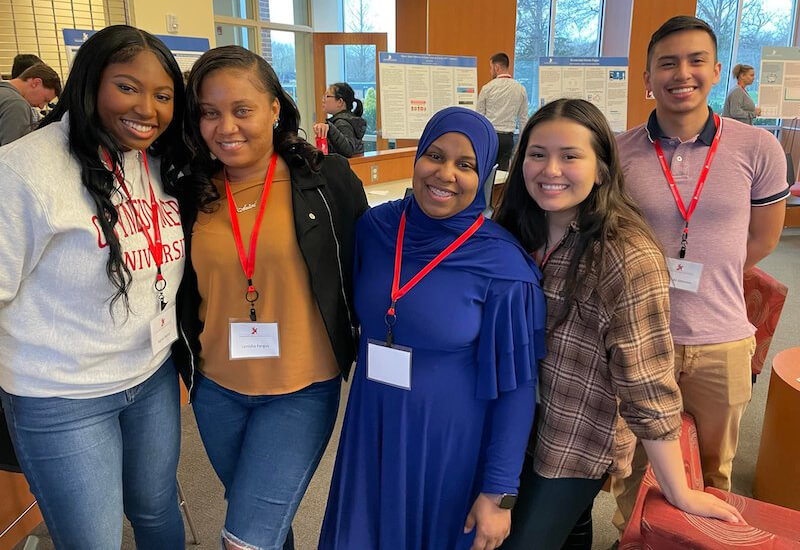 At GMercyU, you can pursue either a Bachelor of Arts in Psychology (BA) or a Bachelor of Science in Psychology (BS), based on your interests. Both the BA and BS psychology degree programs provide a solid foundation in core areas of study in psychology:
At GMercyU, you can pursue either a Bachelor of Arts in Psychology (BA) or a Bachelor of Science in Psychology (BS), based on your interests. Both the BA and BS psychology degree programs provide a solid foundation in core areas of study in psychology:
- Human Development
- Psychopathology
- Research Methods and Experimental Psychology
- Personality Psychology
- Social Psychology
- Biopsychology
To earn your BA in psychology, you will need two semesters (six credits) of coursework in a foreign language. To earn your BS in psychology, you will complete six credits within the natural and computational sciences.
As a psychology major, you'll have many opportunities to conduct student research; see section below for more on this. In the program, you can also:
- Choose our Counseling and Interpersonal Relations minor to gain a valuable specialization, preparing you for graduate school or entry-level positions in the field.
- Use electives to explore your passions and interests. Take courses in specific areas of study, such as forensic and adolescent psychology, or courses in other disciplines. For example, if your goal is working with people in the corrections system, you might take criminal justice or criminology courses in addition to your psychology coursework. Or, if you plan on attending medical school, you can take the pre-med courses needed to help prepare you. Passionate about the sports industry? Take courses within our Sport Management major.
- Connect and bond with other psychology majors at events like GMercyU’s “Painting Away Stress Nights.” This particular event is hosted by the Social Work and Psychology (SWAP) Club.
- Build skills such as critical thinking, problem solving, and communication – key skills employers want. These are skills GMercyU emphasizes for all majors.
And, all GMercyU Psychology majors are eligible to earn a Master of Social Science degree with a 40% tuition discount and in less time, with three courses already completed.
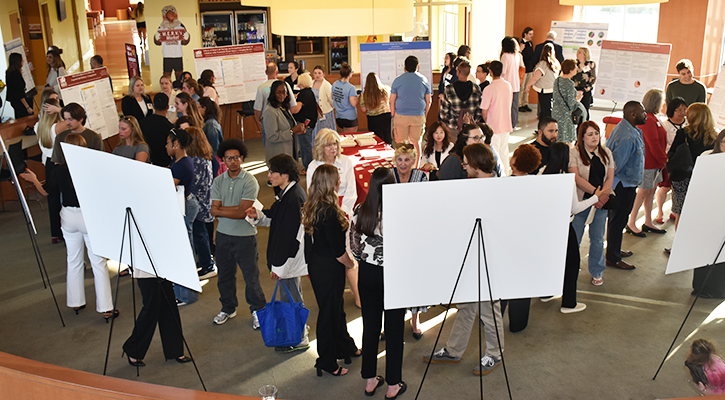 We believe that psychology is best understood through an integrated approach combining classroom lecture, internships, and an emphasis on research and professional development – this includes the ability to develop and execute your own research projects, present your work at professional conferences, and participate in faculty-led research.
We believe that psychology is best understood through an integrated approach combining classroom lecture, internships, and an emphasis on research and professional development – this includes the ability to develop and execute your own research projects, present your work at professional conferences, and participate in faculty-led research.
Through these exciting opportunities, you will:
Learn how to organize, design, and conduct original research protocols so you’re fully prepared for a future career or for graduate-level study.
Receive professional development mentorship from faculty.
Present your findings at professional conferences, such as The Southeastern Pennsylvania Consortium for Higher Education (SEPCHE) Conference, the annual meeting of the Eastern Psychological Association, and other professional settings.
Present your research at GMercyU’s annual University Research Conference (see photo).
GMercyU offers the unique opportunity for eligible Psychology majors to apply for Early Entry to the Master of Science in Counseling Program. Once you're approved for Early Entry, you can take up to 12 credits of coursework from the M.S. in Counseling Program, which will count as undergraduate open electives and may also be used towards the MS in Counseling degree. This option saves you time and a savings of up to $9,000 in graduate tuition!
In GMercyU's accredited, hybrid M.S. in Counseling Program, you can choose from two concentration depending on your career goals: Clinical Mental Health or School Counseling.
In addition to general education requirements, psychology majors will need to complete 48 credits from required program courses.
| PSY 111 | Statistics |
| PSY 150 | Social Psychology |
| PSY 200 | Developmental Psychology |
| PSY 210 | Psychopathology |
| PSY 211 | Fundamentals of Biopsychology |
| PSY 312 | Research Methods |
| PSY 314 | Ethical Issues in Behavioral / Social Science |
| PSY 320 | Experimental Psychology |
| PSY 322 | Psychology of Personality |
| PSY 370 | History of Psychology |
| PSY 435 | Psychology Practicum |
| PSY 4000 | Capstone |
| PSY | Choose 4 Electives |
Credit Requirement
A minimum of 120 credits is needed to satisfy GMercyU's graduation requirements for a bachelor's degree in psychology. For your BA in psychology, you will need two semesters (six credits) in a foreign language. For your BS in psychology, you will complete six credits within the natural and computational sciences.
Undergraduate Minors
Increase the value of your degree as a psychology major with our Counseling and Interpersonal Relations minor or any of our undergraduate minors that suit your personal and professional goals.
Whether you're pursuing the BA or BS academic track for your degree in psychology, GMercyU offers a robust core curriculum. Here’s a look at just a few of the classes offered for psychology majors.
PSY 205 - Forensic Psychology
This course focuses on the application of psychological theory, concepts and principles to civil and criminal justice systems, with a focus on the practice of forensic psychology.
PSY 212 Counseling and Communication Skills
The course is an integrated theory and practice approach to the study of communication styles, communication skills, basic counseling skills and elements of helping relationships. Students will explore the nature and dynamics of the helping encounter, develop interpersonal communication skills, and engage in opportunities for skill development through peer helping practice sessions.
PSY 213 - Human Sexuality
This course focuses on a comprehensive and research-based exploration of the study of human sexuality. The course examines theoretical approaches, sex research, anatomy, sexual development, sex and gender, relationships, and behavior. Students will learn about different identities and perspectives, and evaluate related social issues with a critical lens.
PSY 221 Child Psychology
This course focuses on the successive stages of growth and development from conception through adolescence, including social, emotional, intellectual, moral, perceptual, behavioral, and physical development.
PSY 299 - Making Sense of Suicide
This course will examine suicide, a major public health concern and a leading cause of premature mortality in the U.S. and internationally. Students will gain an understanding of the epidemiology of suicide, the psychological, sociological, and cultural theories explaining why suicide occurs, the risk and protective factors associated with suicide, and the efforts made to prevent it along with the evidence base for these efforts. Additionally, students will explore the lived experiences of those who have attempted or died by suicide through interaction with media content (e.g., testimonials about suicidal experiences).
PSY 313 Mindfulness and Positive Psychology
This course provides students with an introduction to the art and science of mindfulness and the emerging field of Positive Psychology. Mindfulness helps foster improvement in quality of life, awareness, satisfying relationships, well-being and increased positivity which are intimately connected to the foundations of Positive Psychology. Students learn about these fields focused on building upon one's strengths, virtues as well as cultivating resilience.
For all Psychology program course descriptions, please refer to the University Catalog.
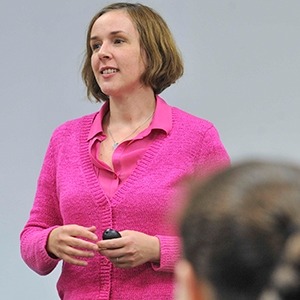 Rebecca Gullan, PhD
Rebecca Gullan, PhD
Position: Professor, Psychology Program Director
Did You Know? Dr. Gullan has published research on marital and family interactions in clinic-referred families, college student mentorship, and school-based interventions to support prosocial behavior and identity development in high-risk youth.
Read bio
 John Gunn, PhD
John Gunn, PhD
Position: Assistant Professor
Did You Know? An expert on suicide, Gunn serves on the editorial board of "Crisis: The Journal of Crisis Intervention and Suicide Prevention" and serves as an ad-hoc reviewer for a number of professional journals.
Read bio
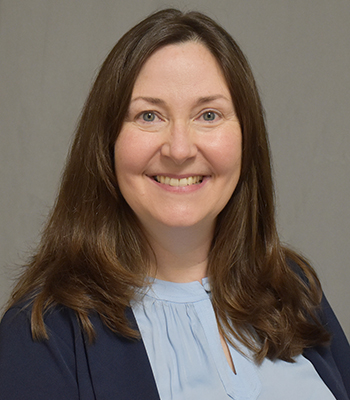 Stephanie Fratantaro, MS, NCC, LPC
Stephanie Fratantaro, MS, NCC, LPC
Position: Professor of Practice
Did You Know? Fratantaro maintains an outpatient therapy practice outside of her role at GMercyU.
Read bio
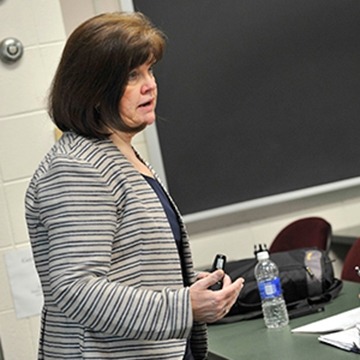
Mary Reilly, MS
Position: Professor Emerita
Did You Know? Professor Reilly is a recipient of the Lindback Award for Distinguished Teaching and the Sister Isabelle Keiss Award for Community Service.
Read bio
Real-World Opportunities
To build your resume for immediate employment or a graduate school application, all GMercyU Psychology majors:
- Complete an internship of clinical work
- Take at least two advanced research courses
- Present your research at GMercyU's Undergraduate Research Conference
Student internships help you put the skills you learn at GMercyU into real-world practice. They also enhance your resume with work experience and professional references.
Interning is also an excellent opportunity to explore a psychology specialty. You could intern with organizations that assist people dealing with crisis situations, domestic violence, workplace wellness, or substance abuse recovery.
GMercyU psychology students have recently served and learned at a number of local organizations:
- A Woman’s Place
- Big Brothers Big Sisters
- Caring Hospice
- Child and Family Focus
- Children’s Hospital of Philadelphia – Roberts Research Center
- CSF Buxmont Academy
- Gwynedd Mercy Academy High School
- Horsham Clinic
- Lansdale Catholic High School
- Laurel House
- Mind of the Athlete
- Mitzvah Circle
- Penn Foundation
- Philadelphia Police Department
- Project Home: Jon Bon Jovi Souls Homes
- The Philadelphia Zoo
- The Training Room
- The University of Pennsylvania School of Veterinary Medicine
- Valley Forge Hospital and Rehabilitation Center
- Valley Youth House
- Women’s Center of Montgomery County
![]() The Griffin Edge is comprised of five touchpoints -- Excellence, Engagement, Experience, Empathy, and Encouragement -- that become the cornerstones of your Distinctive Mercy Experience as a full-time undergraduate student.
The Griffin Edge is comprised of five touchpoints -- Excellence, Engagement, Experience, Empathy, and Encouragement -- that become the cornerstones of your Distinctive Mercy Experience as a full-time undergraduate student.
The Griffin Edge includes an e-portfolio for documenting your GMercyU educational and extracurricular experiences (no matter your major), reflecting on those experiences, and receiving feedback from faculty. It's designed to help you take ownership of your educational journey and chart the right career path for you. It will also help you learn how to talk about your college experiences in meaningful ways — and that can make all the difference in a job interview.
For example, a student might say in a job interview: "I conducted research at the undergraduate level."
A Griffin Edge student might say: "The opportunity to conduct my own research alongside expert faculty taught me the importance of being exact in my data collection and analysis. I was even able to present my findings at our annual research conference! I know this is the career for me."
Learn more about the Griffin Edge here.
Some career options for those with a bachelor’s degree in psychology include:
- Behavioral Health Technician
- Substance Abuse Counselor
- Market Research
- Advertising and Consumer Behavior
- School Support Specialist
- Mental Health Technician
- Residential Support
- Clinical Research Associate
- Human Resources
Here’s what you can do with the right master’s degree and/or license:
- Licensed Professional Counselor
- Licensed Mental Health Counselor
- Licensed Social Worker
- Industrial Organizational Psychologist
- Clinical Research Coordinator
- Entry into doctoral programs across all areas of psychology
Here’s a closer look at just a few of the many career paths for psychology majors.
Substance Abuse Counselor
Description: A substance abuse counselor works with individuals struggling with a drug or alcohol addiction. They often work in an independent practice, addiction treatment facilities, prisons, and mental or community health programs.
Degree Requirements: Bachelor’s degree
Average Salary: In 2024, the average annual salary in the U.S. was $59,190 per year, with the highest 10 percent earning more than $98,210.
Source
Licensed Professional Counselor
Description: Licensed Professional Counselors (LPCs) assess and treat mental and emotional disorders and work with individuals, couples, families, groups, and organizations in a variety of settings.
Degree Requirements: Master's degree
Average Salary: The current average salary is $59,138.
Source
Psychologist
Description: A psychologist uses observational and conversational skills to identify the root cause of behavioral, cognitive or emotional struggles an individual may be facing. Work in a private practice or in the health care or school setting.
Degree Requirements: PhD or PsyD in psychology. Additional licensure may also be required.
Average Salary: In 2024, the median annual salary for a psychologist in the United States was $94,310, with the top 10% earning more than $157,330.
Source
We get to know every student really well and work with you one-on-one to find the right career path for you. Then we help get you where you want to go. Our career mentorship with students is a key component of this program.
—Rebecca Gullan, PhD, Professor and Program Director, Psychology program
Counseling Minor
Learn to effectively communicate, actively listen, and intentionally respond in a variety of professional roles and/or in community leadership.
Scholarships
GMercyU offers dozens of scholarships and grants to help you save on a great education. They do not need to be repaid and generally are renewable each year.
Transfer to GMercyU
GMercyU grants up to 90 qualifying credits toward a bachelor's degree and offers renewable transfer scholarships & grants ranging from $11,000 to $21,000 a year.

